Description
Makinohara Fukamushi Sencha (深蒸し煎茶) is a green tea from Japan that undergoes ‘deep steaming’, a process that imparts a character that is more complex and sweeter than other conventional sencha green teas. Grown at low altitude around Makinohara in Shizuoka Prefecture, it is made from the Yabukita (やぶきた) cultivar. This particular batch is a first flush tea, harvested in May 2022. It is also a partially shaded tea (similar to gyokuro) that is shaded for 5 days prior to plucking to concentrate the flavour in the leaves. Like all of our Makinohara Japanese teas, we source it directly from the grower in Shizuoka.
This Makinohara Fukamushi Sencha, like most Japanese green teas, is steamed rather than pan roasted. However it is rather more special as it undergoes a lengthier steaming process, referred to as ‘deep steaming’. In Japanese, this lengthier steaming is called fukamushi (深蒸し), where the tea is steamed for 1-2 minutes as opposed to the usual futsuumushi (普通蒸し) steaming, which is only 30 seconds to 1 minute. There is also an even lighter version that is called asamushi (浅蒸し) or ‘light steamed’ tea, which undergoes steaming for less than 30 seconds. Even though gyokuro, kabusecha and even bancha can be deep steamed, it is usually senchas that undergo such treatment.
This longer kill-green steaming process makes quite a big difference to the flavour of the tea. It diminishes astringency and increases sweetness, resulting in a good balance between the classic umami depth and a pleasing sweet aftertaste. The steaming process makes the tea leaves very soft, so during the next processing stage, which is rolling, the leaves will often break. This results in variable leaf size, with many very small broken leaf fragments. It can appear like a low-quality sencha, but the reality is completely the opposite as it the result of the specialised deep steaming process.
When brewed, fukamushicha also has a stronger, more vibrant, green color, with a cloudy liquor and visible sediment. There are Japanese teapots specifically designed for brewing fukamushicha, which have a finer brewing mesh and a larger surface area so that it doesn’t get clogged with the fine tea particles. We recommend using a very fine mesh infuser if you have one. On the plus side, having fine particles in your tea can increase the health benefits, as you will be consuming more leaves (and their catechins, fibre, vitamins, and chlorophyll), very much akin to matcha drinking!
The leaves of this Makinohara Fukamushi Sencha are dark green in colour, mostly formed of smaller broken leaves and particles. This is the direct result of the deep steaming process. To achieve a more balanced taste we suggest a lower brewing temperature and shorter infusion time as the smaller leaf releases more flavour, more quickly. This Fukamushi Sencha produces a vibrant green liquor with a grassy aroma. The liquor itself is cloudy, due to the fine particles. The flavours are smooth, both sweet and savoury with a herbaceous, grassy profile. There are umami notes of kombu seaweed. The aftertaste is long lasting and verdant. Overall this tea delivers the typical complex savoury grassy flavours while maintaining a finely balanced character thanks to those sweeter notes.
Makinohara Fukamushi Sencha is best brewed at 70°C for 1-2 minutes, with multiple infusions.
This tea was first featured in our March 2019 Curious Tea Subscription Boxes.

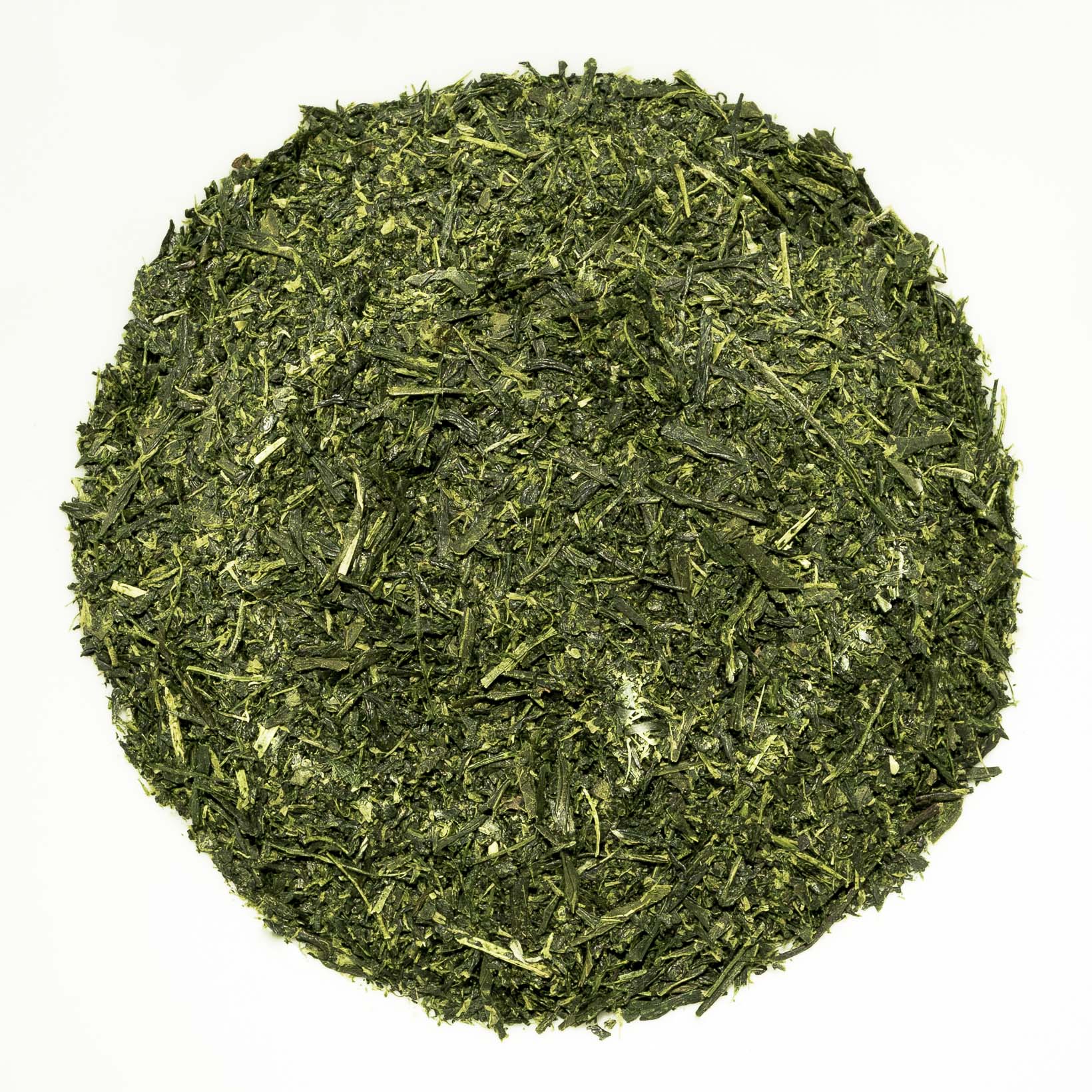
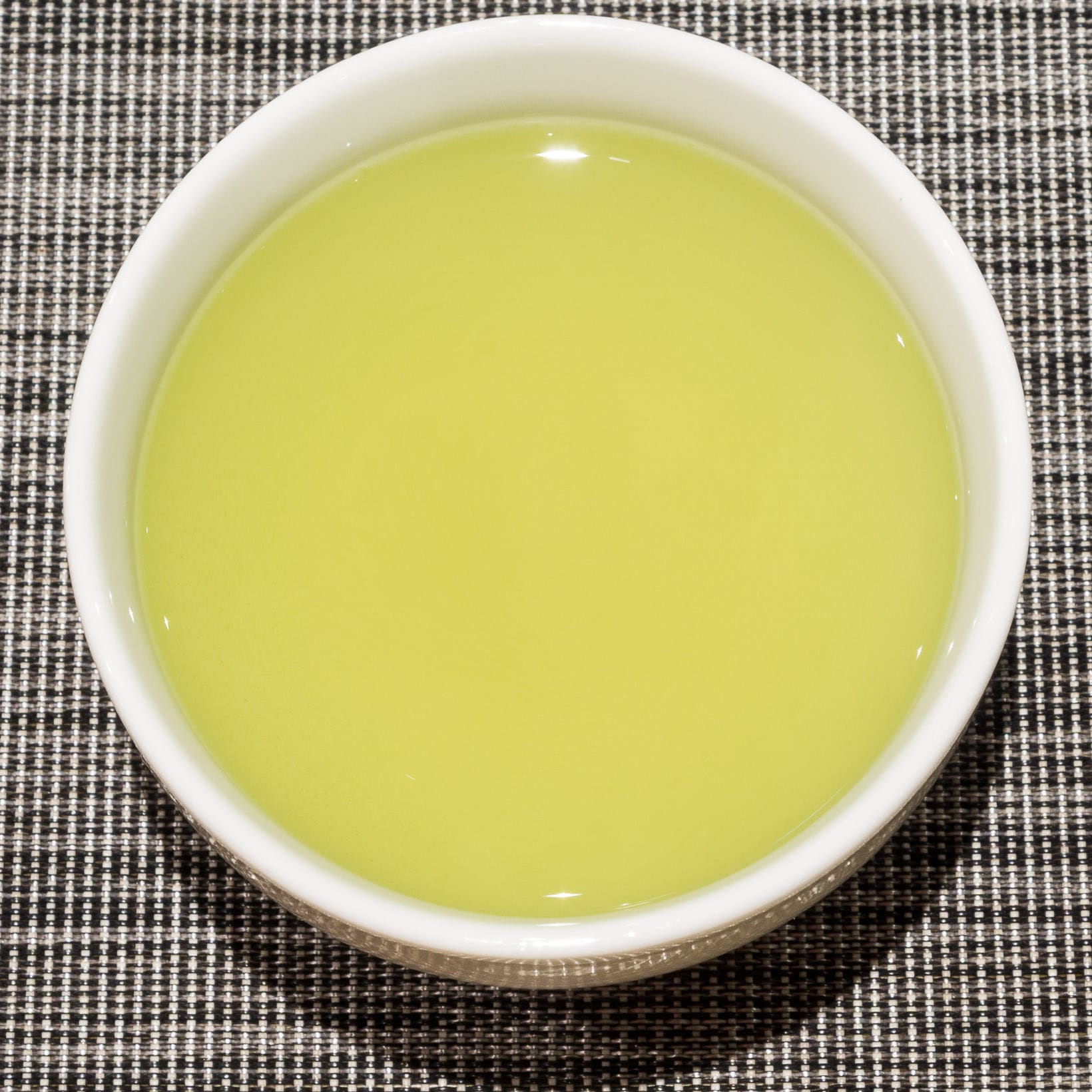
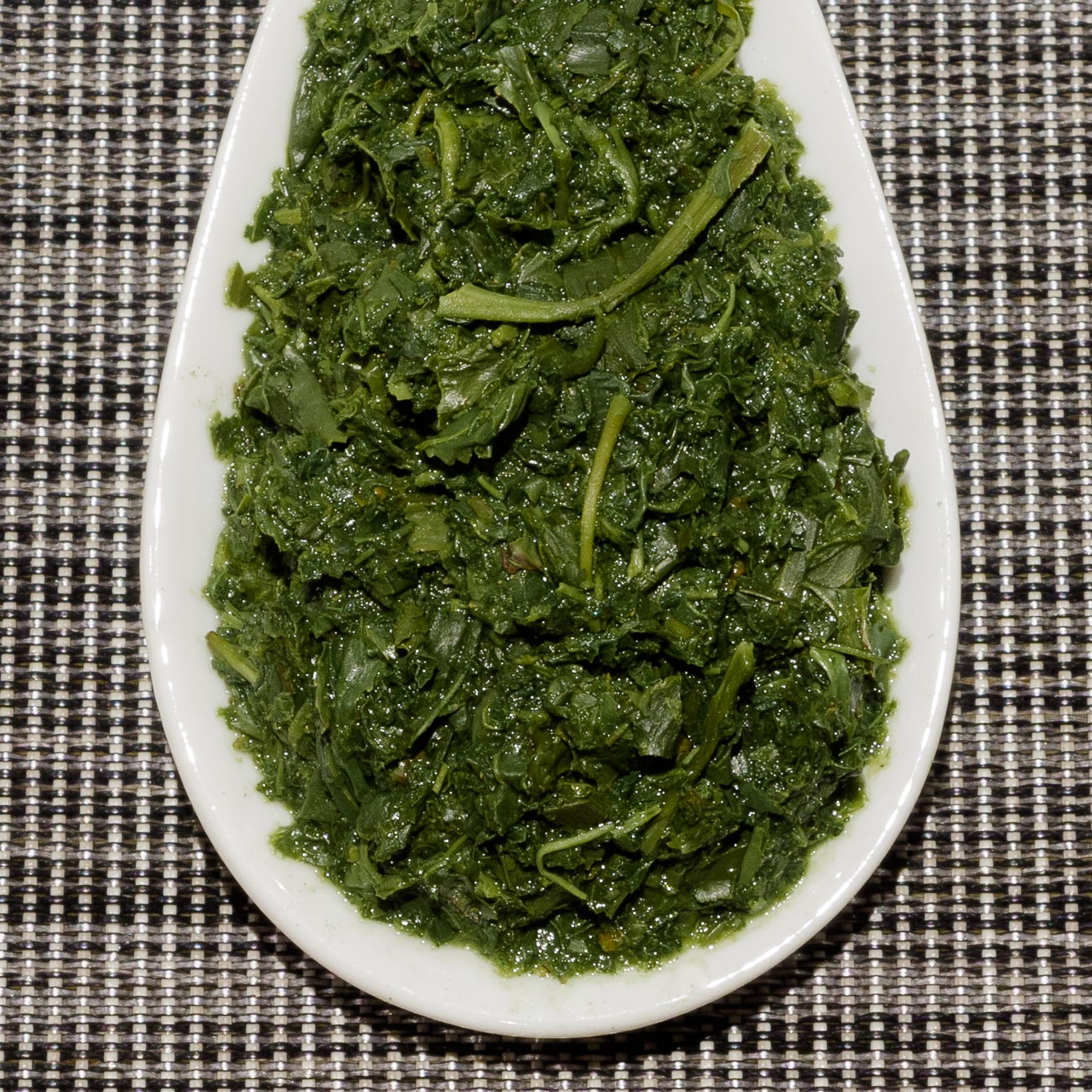
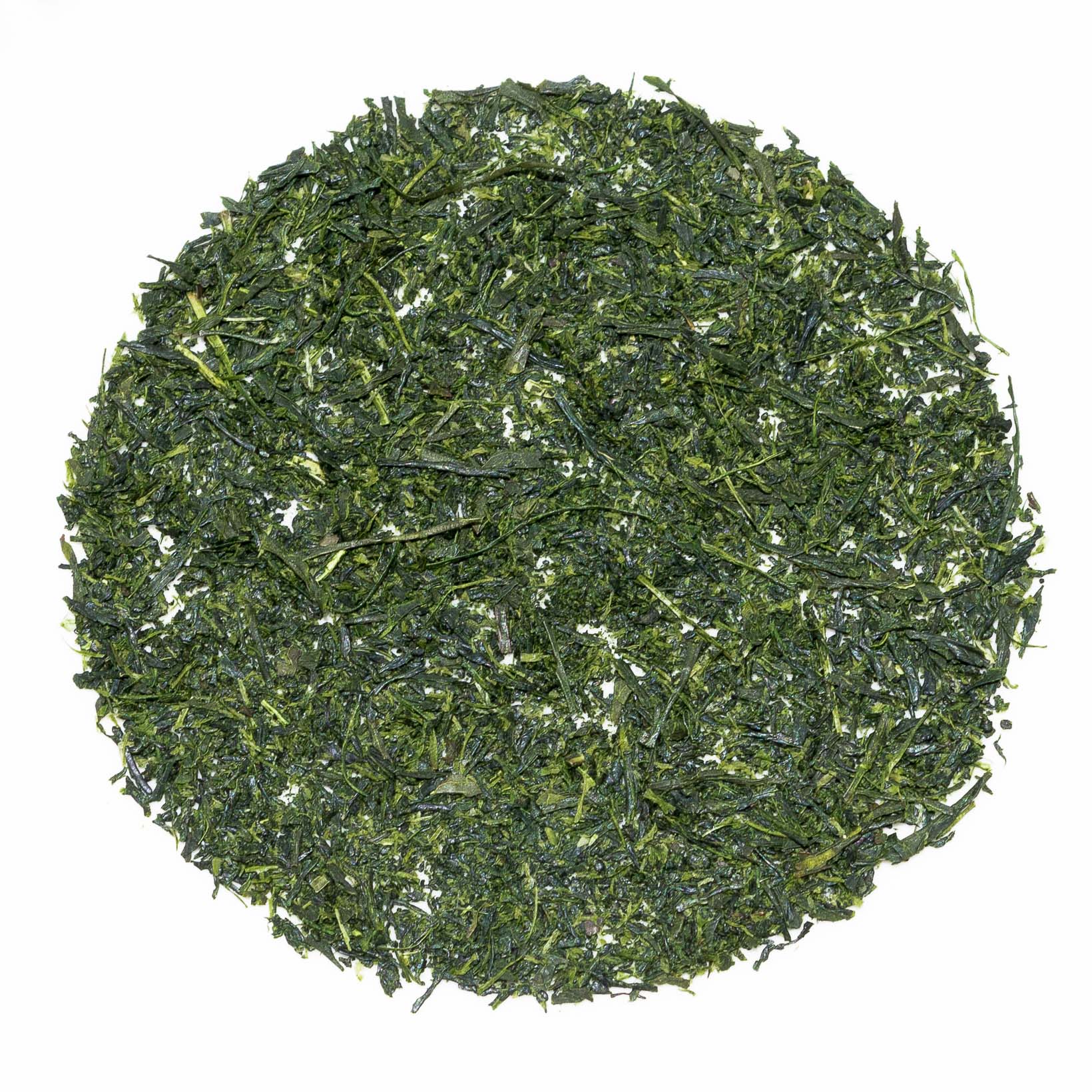
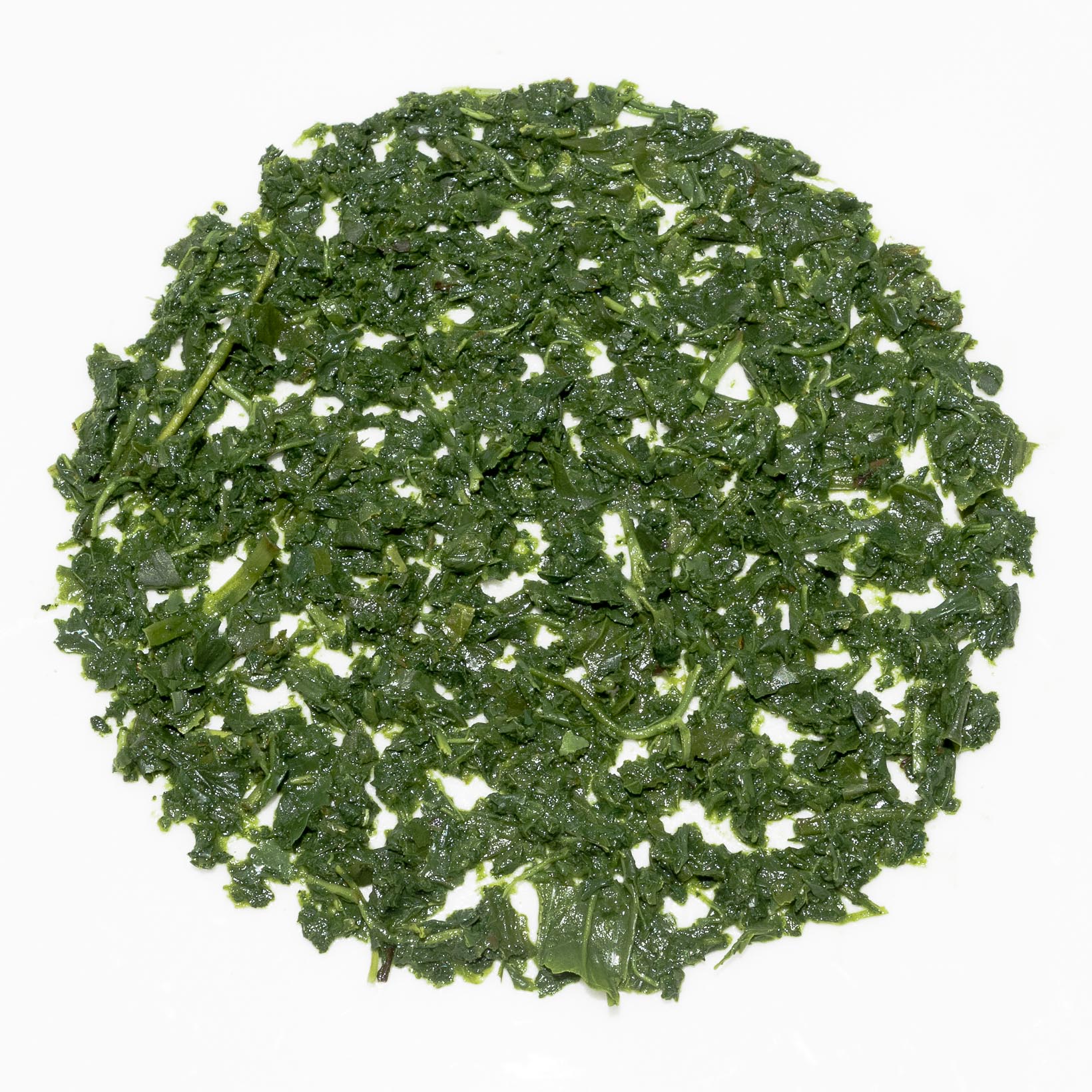
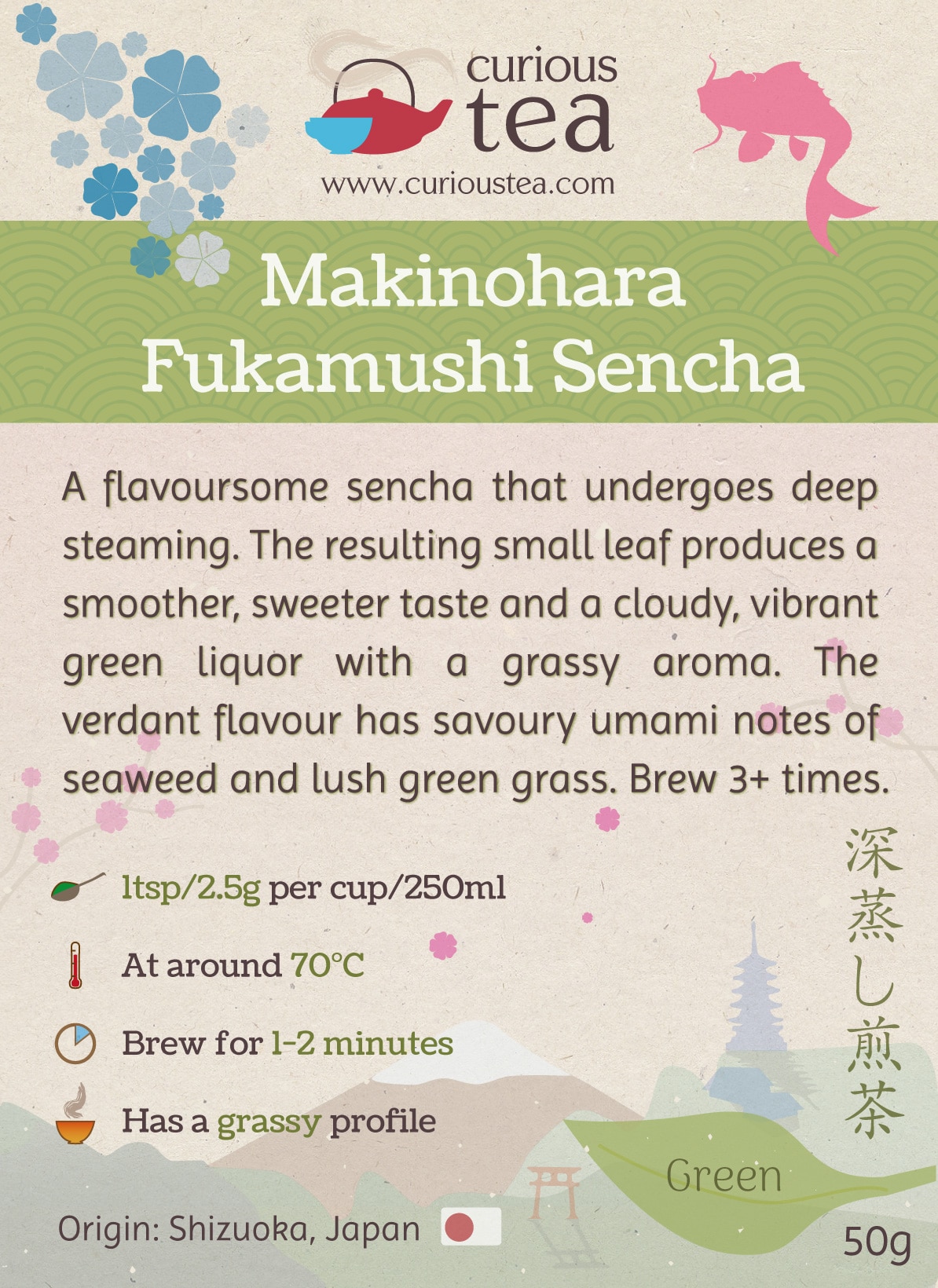

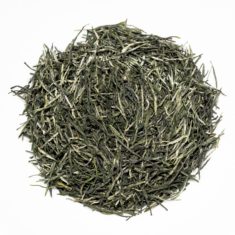 Chinese Green
Chinese Green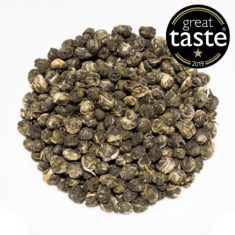 Chinese Green
Chinese Green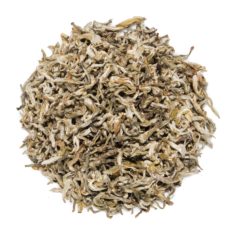 Chinese Green
Chinese Green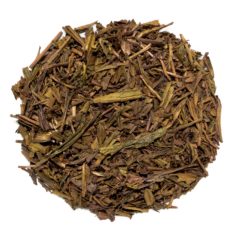 Japanese Green
Japanese Green